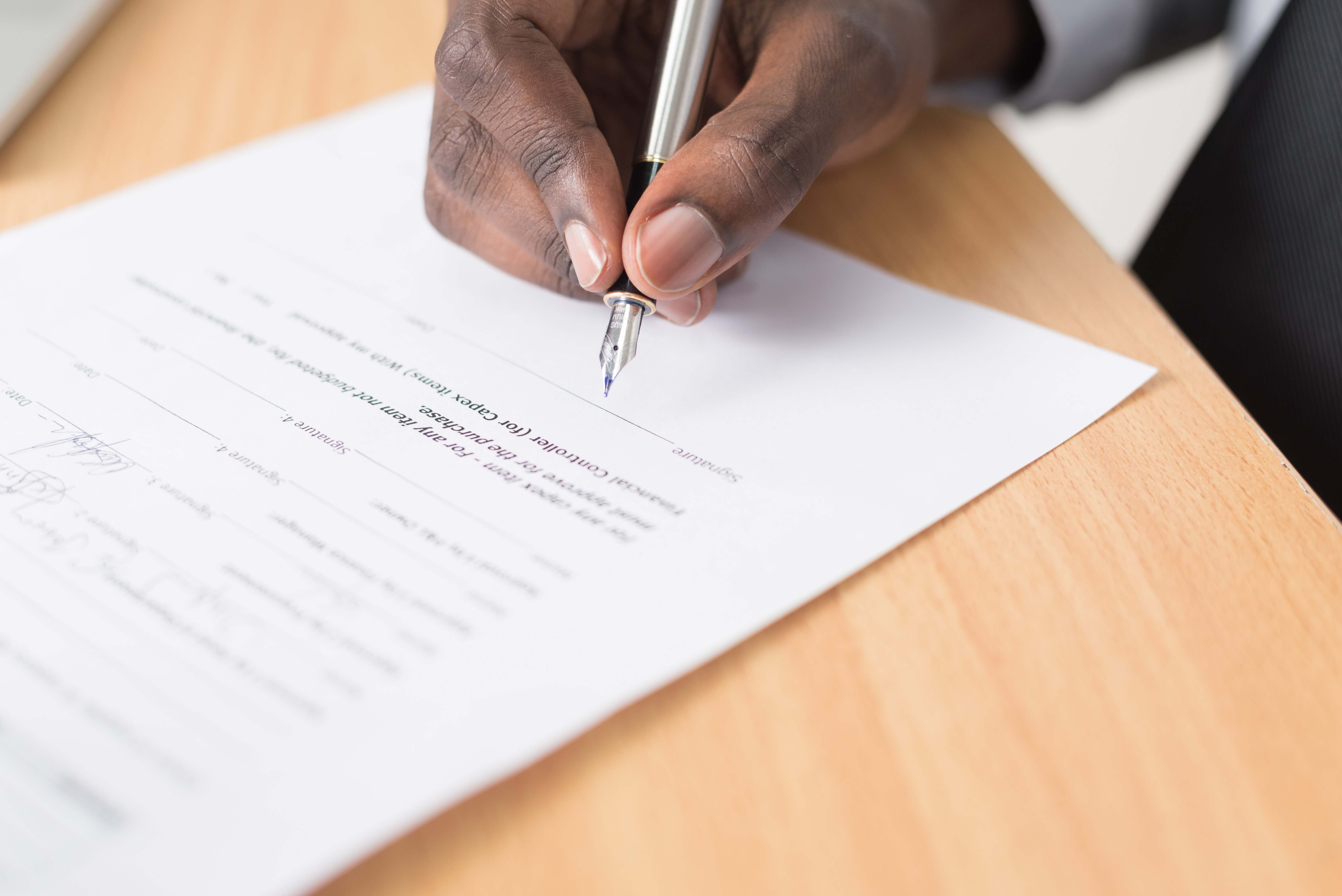Making a Lasting Power of Attorney
A Lasting Power of Attorney will help you make sure that your wishes are followed if, for whatever reason, you’re no longer able to make your own decisions or tell people what they are. Whether it’s making temporary arrangements to pay bills whilst you’re in the hospital or appointing someone you trust to manage your affairs for the long term, this guide will give you all the information you need about what you need to consider when making your Lasting Power of Attorney.
TABLE OF CONTENTS
• What is a Lasting Power of Attorney
• What does the term ‘mental capacity mean’
• Why should I make a Lasting Power of Attorney?
• Key People: Choosing an Attorney
• What are the different types of Lasting Power of Attorney?
• Ways to make a Lasting Power of Attorney
• Costs of making a Lasting Power of Attorney
• Next Steps

Dealing with money and paperwork can be difficult if you become unable to manage your own affairs for any reason and in ill health, it may be impossible. Before that happens, it is advisable to appoint a trusted representative, known as an attorney, who can look after your finances and welfare for you should the situation arise. The Lasting Power of attorney (LPA) is the legal document which allows you to do this.
To make an LPA you must be over 18 years of age and you must still have the mental capacity to make the decisions involved in setting up the LPA. You must make the LPA as an individual and no one can make it on your behalf.
Throughout this page we’ll be using the term ‘mental capacity’ which means you are able to make your own decisions and understand any implications of that decision.
If someone can’t understand information relating to a decision they need to make, keep that information in their mind, make a decision based on that information or communicate their decision (by talking, sign language or other means), they are said to be unable to make that decision.
Mental capacity is different to everyone and it can change from day to day and support is available to correctly (and if needed, independently) assess mental capacity. Taking time to understand or communicate a decision should not be mistaken for lack of mental capacity. In addition, having a condition such as dementia for example, doesn’t necessarily mean you can’t make any decisions.
If there is any doubt about mental capacity, a professional opinion should always be sought.
If you become unable to make decisions for yourself and have not appointed another person as an attorney, your personal affairs would become the responsibility of the Office of the Public Guardian and it may be necessary for the Court of Protection to become involved. The Court will appoint a person (called a Deputy) to make decisions on your behalf.
The major disadvantages of not having a Lasting Power of Attorney in place are firstly the delay in dealing with your affairs and secondly, the cost of making a Deputyship application which is likely to be much more expensive than making a Lasting Power of Attorney. There are also on-going yearly costs payable to the Court of Protection and the person appointed as your Deputy may not be someone you would have chosen i.e. a professional deputy rather than a family member.
People lose mental capacity because of illness, accident and conditions such as dementia and this can happen at any age. In addition, the Property and Affairs LPA can be very useful for people who need extra help with managing their household finances from time to time. It can also be restricted to business interests only which is often helpful for business owners who may travel and require a responsible person to act in their absence for example.

An attorney is simply someone you choose to make decisions for you should you become unable to. They should be someone over the age of 18 who you trust. They do not need to be a partner or relative and could be a close friend or even professional.
It can be a good idea to appoint more than one attorney, but you need to decide whether they’ll need to make decisions jointly or not. Also think about appointing replacement attorneys in case someone can’t act on your behalf anymore.
Think about who you believe would be able to make decisions in your best interests and make sure you give them time to think about their role in advance.
There are two types of Lasting Power of Attorney:
Property and Affairs LPA
This document allows your trusted person (your ‘attorney’) to make decisions about your property and financial affairs. This type of LPA can be used both whilst you have the capacity as well as once you have lost mental capacity should you choose.
With this type of LPA, your attorney can make decisions on aspects such as:
• Paying bills
• Collect pension or welfare payments on your behalf
• Arranging repairs to your home
• Selling your home
Key Facts:
• You decide when you want this type of LPA to start i.e. whilst you still have the mental capacity or if you lose capacity
• You can choose if your attorney can make all or only certain types of financial decisions on your behalf
• Your attorney has to keep your money separate from theirs and keep accounts to show this
• You can ask for regular details of much money you have or that has been spent. You can also ask that these be sent to your solicitor or a family member

Health and Welfare LPA
This document allows you to choose the person who will make decisions about your health and personal welfare. Unlike LPA’s for financial decisions, your attorney can only use this LPA if you no longer have mental capacity.
With this type of LPA your attorney can make decisions on aspects such as:
• Where you should live
• Your medical care
• What you should eat
• Who you should have contact with
• What kind of social activities you should take part in
Key Facts:
• You can also give your attorney permission to make decisions about life-saving treatment
• If you lose mental capacity and don’t have an LPA in place, any decisions about your healthcare will be made by doctors. They will consult your family but final decisions rest with them
• This type of LPA can only be used if you have lost mental capacity
You can make your LPA by using the templates on HM Governments website and fill out the forms yourself. However, taking professional advice could prevent problems later on, especially if you’re unsure of the process or if your affairs are complex.
You will need to have your LPA signed by a “Certificate Provider”. This must be someone you know well or a professional such as a doctor, social worker or professional adviser but it can’t be a family member. It’s the Certificate Providers’ job to confirm that you understand what the LPA is and that you haven’t been put under any pressure to sign it.
Your LPA cannot be used until it has been registered with the Office of Public Guardian who make a charge of £82 per document for this process. Registration can take between 16-20 weeks so this is another reason to get your LPA in place well in advance of needing it. If you’re on a low income (under £12,000) you may be eligible for a discounted charge from the Office of Public Guardian or if you’re receiving certain benefits you may not need to pay for registration at all.
It’s important that when you make your Lasting Power of Attorney you are clear of the process and costs at the outset.
If you choose to engage the services of a professional adviser, they will be able to outline the cost of preparing the document as well as any additional costs such as registration with the Office of Public Guardian. Remember, you get what you pay for and it if seems too good to be true, it often is.
You can expect to pay between £200 and £400 for a professional Lasting Power of Attorney service. Fees will vary based on the complexity of your personal affairs, any business affairs and any specific preferences or instructions you may wish to include within your LPA.
Remember, this is one of the most important documents you will ever make as you safeguard your affairs and personal welfare and entrust another person to make key decisions in your best interests.

Next steps
If you would like to speak to a member of our team we will be able to advise you, or alternatively, you can download our Guide to Lasting Powers of Attorney.



